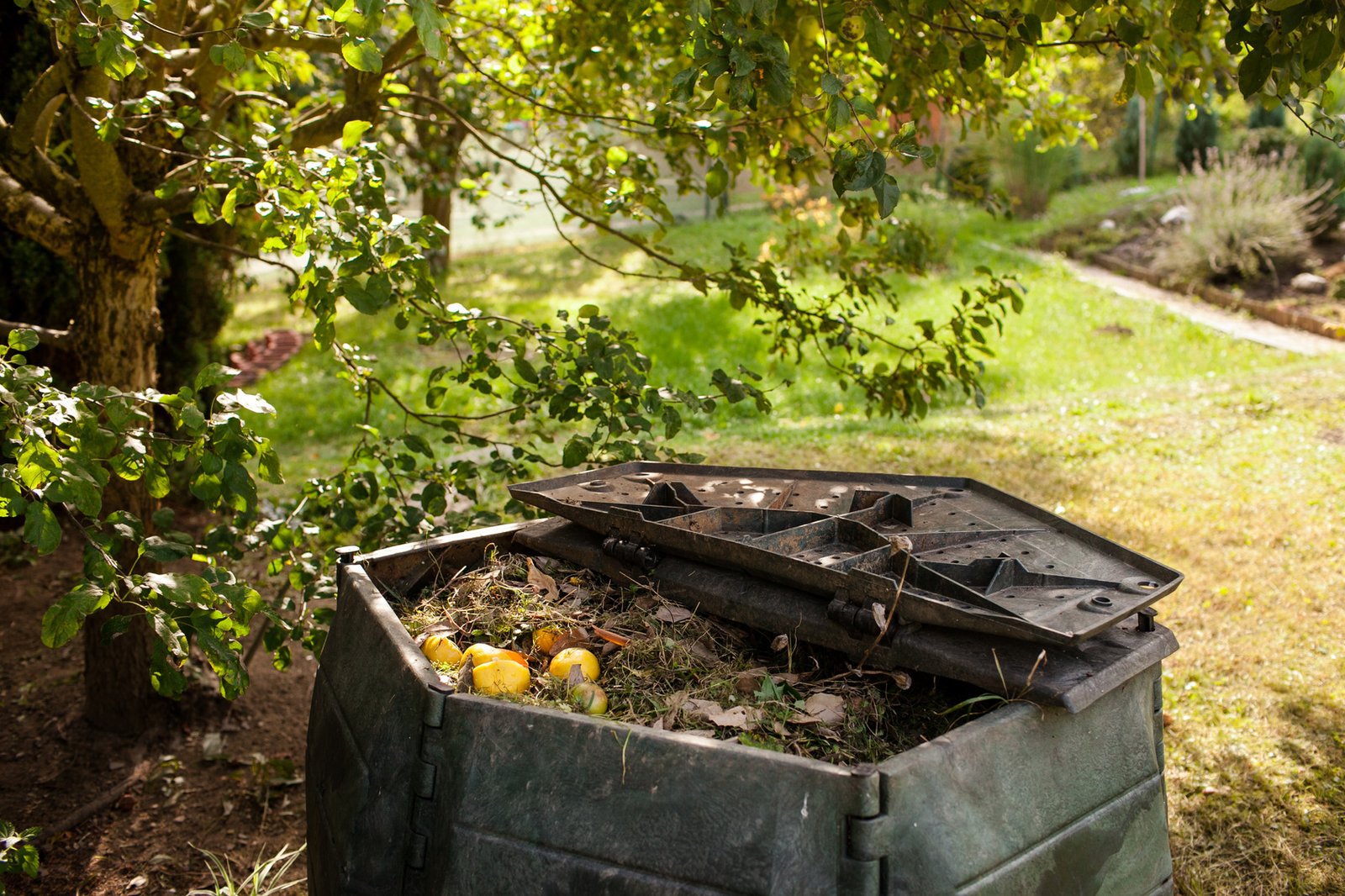Home composting. How can I improve my garden using waste?

Composting is the process of decomposing organic material wherein soil microorganisms turn waste into humus, a rich natural fertilizer for plants. This process occurs naturally if you heap up an adequate mix of organic materials in a proper container. After this process, you can use the humus formed as a free and potent fertilizer for your garden.
When you compost at home you are not only saving money, but also benefiting the planet in many ways. Firstly, you will reduce the amount of waste sent to landfill. Organic material when disposed as such produces methane, which is a potent greenhouse gas responsible for climate change. Secondly, it will reduce your demand for industrialized gardening products such as artificial fertilizers. Finally, it will minimize your purchase of grocery and plants, as constantly fertilizing your garden will enable it to produce more flowers, herbs, fruits and vegetables.

To start composting, you need a composter, which you can make yourself or order online. To make your own composter you can use timber to make a wooden box, leaving spaces between each plank to allow air to mingle with the organic material. You do not need to make a bottom, as contact with the soil is necessary to allow beneficial microorganisms to enter your composter and break your waste into humus. In case your composter has a bottom you will need to add a thick layer of soil or mature compost before adding any compostable material. It is neither necessary to have a lid, but it is recommended that you have something to cover the composter to better control the level of moisture and heat. You can make a wooden lid or use a piece of carpet.

Another easy way to make your own composter is using a plastic bin turned upside down on soil and then cutting the bottom out. You can use a piece of plastic or carpet to cover it. If you prefer buying your composter, most UK councils have set up partnerships to provide it at subsidised prices. You can check this by searching for your council here or directly checking your postcode on GetComposting.com.
With your composter in place, it is time to start separating material to compost! You should add a balanced mix of greens and browns to your compost bin, 50% of each category.
Greens are quicker to compost and provide moisture and nitrogen to the mix. Nitrogen is an essential element to plants, forming chlorophyll and allowing photosynthesis, which is their “feeding” process. Grass cuttings, vegetable and fruit peelings/scraps, cut flowers/leaves and plants (even poisonous ones), uncooked leftover food, coffee grounds and filters, tea bags and leaves, hay and urine are all considered Greens.

Browns are drier and slower to compost, so they will allow air pockets to form and provide carbon – another important element for photosynthesis – and fibre to the mix. Dried leaves, natural Christmas trees, prunings, wood ash, egg boxes and shells, nuts, cork, shredded cardboard and paper, hair, nail cuts, wool, cotton wool, and shredded cotton towels and sheets are all Browns.
In case you have doubts about whether a specific material is Green or Brown you can check this link for further information. Alternatively, you can start using this material in small amounts on your compost bin so you do not affect the adequate mix of components and can figure it out by observing how it decomposes.

Composting is easy and represents no danger to you and your family. It does not attract mice, cockroaches or foxes if you compost the right materials as these animals are attracted to cooked or processed food and drier environments. The balance between Greens and Browns will also guarantee the material reaches a final nice earthy smell, which indicates the compost is ready for use. This can take between nine to twelve months and turning the compost no more than once a week can speed up the process, as some of the composting microorganisms need air to survive.
If you do not have a garden or an outdoor space, you may need to settle for an indoor wormery to compensate for the lack of microorganisms – as worms accelerate the composting process, feeding from the greens – but you may not have much use to all the composted material. In this case it is usually recommended that you separate your waste for recycling collection as indicated here instead of composting at home.
But if you have even a tiny garden or a terrace/balcony where you can have potted plants, set up your composting bin and Green It Yourself… Now!








Great tips!